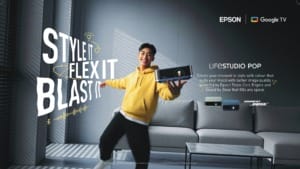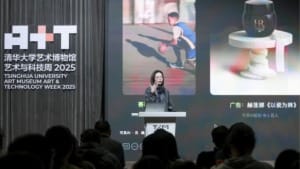ByteDance adds real-time video chat to Doubao AI, turning it into a smart assistant
Doubao by ByteDance adds real-time video chat, making it a smart digital assistant with AI-powered help in your daily life.

ByteDance, the company behind TikTok, has given its popular Doubao AI chatbot a major upgrade. You can now have real-time video conversations with the chatbot, turning it into a smart and helpful digital assistant. This new feature was announced on May 24 through Doubao’s official WeChat account.
Table Of Content
If you’re using Doubao and start a voice call, switch on your smartphone camera to activate the new function. From there, the chatbot becomes much more than just a voice. You can interact with it in ways that suit your everyday needs. It can act as a museum guide while you tour, offer gardening advice when you show it your plants, help you find the right ingredients when shopping, or even analyse charts and videos right before you.
What powers the new video feature
The real-time video chat runs on ByteDance’s visual reasoning AI model. This smart technology combines what it sees and hears, allowing Doubao to understand and respond using images and language. It can also browse the internet for up-to-date information, making it a very current and useful tool.
This update shows how far ByteDance has come in generative AI—technology that can create new content like pictures, sounds, videos and even computer code. The company has built strong, multimodal AI models that let Doubao respond more human-likely and creatively.
In early May, Doubao introduced another creative tool that let users turn any photo into pixel art. In February, ByteDance released its OmniHuman-1 model, which wowed users with its ability to turn voice and photo inputs into realistic video clips.
Doubao is gaining global popularity
Doubao is becoming one of the world’s top generative AI apps. In April, it ranked third worldwide, with 107 million monthly active users, according to AI app tracker AIcpb.com. Only OpenAI’s ChatGPT and Alibaba’s Quark were ahead, with 546 million and 149 million users, respectively.
These numbers show that people are turning to AI-powered tools for more than just fun—they want real support, creativity, and conversation. Doubao is quickly becoming one of the go-to apps for users looking for a smarter and more interactive experience.
The wider AI race in China
ByteDance isn’t the only Chinese company racing ahead with AI tools. In March, Alibaba launched its own powerful model, Qwen2.5-Omni-7B, which works across text, images, sound and video. Tencent has also joined the race with its chatbot Yuanbao, which can read documents, summarise them, answer questions, and create text and images. It’s built on the company’s Hunyuan AI model.
Another player, DeepSeek, released Janus Pro in January. This tool is aimed at developers and supports image creation and a better understanding of multiple forms of content.
In April, DeepSeek’s and Tencent’s AI apps ranked fourth and sixth globally, with 97 million and 41 million users, respectively.
These developments show how fast the AI field is growing. With Doubao’s latest video feature, ByteDance is showing that it plans to stay at the front of the AI race by offering smarter, more helpful tools for everyday life.















